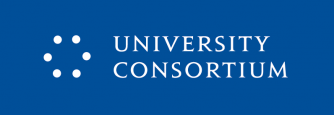Audio Files: Logic and Major Principles of Russian Foreign Policy
Summary:
by Elizabeth Teague
Dr Suslov opened with the question, “What is the inherent logic of Russian foreign policy?” In order to understand its logic, continuity and predictability, you have to penetrate into the Russian foreign policy thinking and see the world and international affairs how Russia sees them. The purpose of this lecture is therefore to get you acquainted with the Russian worldview and give you an understanding of how world politics works and how great powers behave. You don’t have to agree with this understanding or consider it correct. But you do have to understand it in order to explain and predict Russian foreign policy.
First, it is necessary to understand that the Russian worldview and understanding of great power politics is very different from the mainstream view predominant in the Euro-Atlantic community. Second, it has a strong internal logic and continuity. And third, it is very close to the views of major Western realists such as John Mearsheimer, Henry Kissinger or George Kennan.
Russian foreign policy is shaped by three major determinants. One is constant, while the other two change from time to time.
The constant determinant is Russia’s foreign policy philosophy or identity, which are products of its history; its experience of wars and invasions; its culture; its geography; its religion. These determinants explain the continuity and logic of Russian foreign policy.
As for the dependent variables, these are Russia’s perception of the external environment, and the dynamics of Russian economic and military development. These dependent variables explain changes of Russian foreign policy.
Dr Suslov went on to define and explain Russian foreign policy identity; to describe how Russia sees the external environment; and to outline the major priorities and prospects of Russian foreign policy for the next several years.
Despite Russia’s inability to dominate the others even in its neighborhood, it still vigorously refuses to be dominated by anyone else, to accept anyone’s hegemony and leadership, be it the US or China. This is indeed a constant feature of Russian foreign policy. Even in the early 1990s, when Russia was ready to join the West, it demanded a position of something like “Vice-President of the world,” something much more prestigious and influential than that of any of the US allies of that time. It wanted to join the West as a great power, not as one of many other candidates.
Russian rejection of others’ leadership, let alone hegemony -- be it the US or China -- and Russia’s insistence upon joint management of international orders, especially security ones, are perhaps the most fundamental reason behind its continuously negative attitude towards NATO. NATO is seen by Russia as a US-dominated institution, an embodiment of American hegemony in the European and Euro-Atlantic hard-security order.
Russia no longer views the world as West-centric, and no longer regards the West, including Europe, as synonymous with modernity and as the major source of Russian modernization. The world has become “post-West.” The US is no longer able to determine the development of key regions. The Pacific, not the Atlantic, has become the centerpiece of the world economy and world politics. By 2050, the world’s two biggest economies will be China and India, with the US in third place and the EU’s GDP being smaller in size than that of India. Today, non-Western countries are conducting increasingly independent foreign policies.
Is such a world there is no need for Russia to conduct a West-centric, let alone a Europe-centric, foreign policy. On the contrary, a West-centric policy would result in Russia’s marginalization, not its strength. This understanding predetermined a fundamental shift of Russian foreign policy: it is no longer West-centric, in either a positive or a negative sense; relations with the non-West have become a value of their own; and Russia has started a “turn to the East.”




